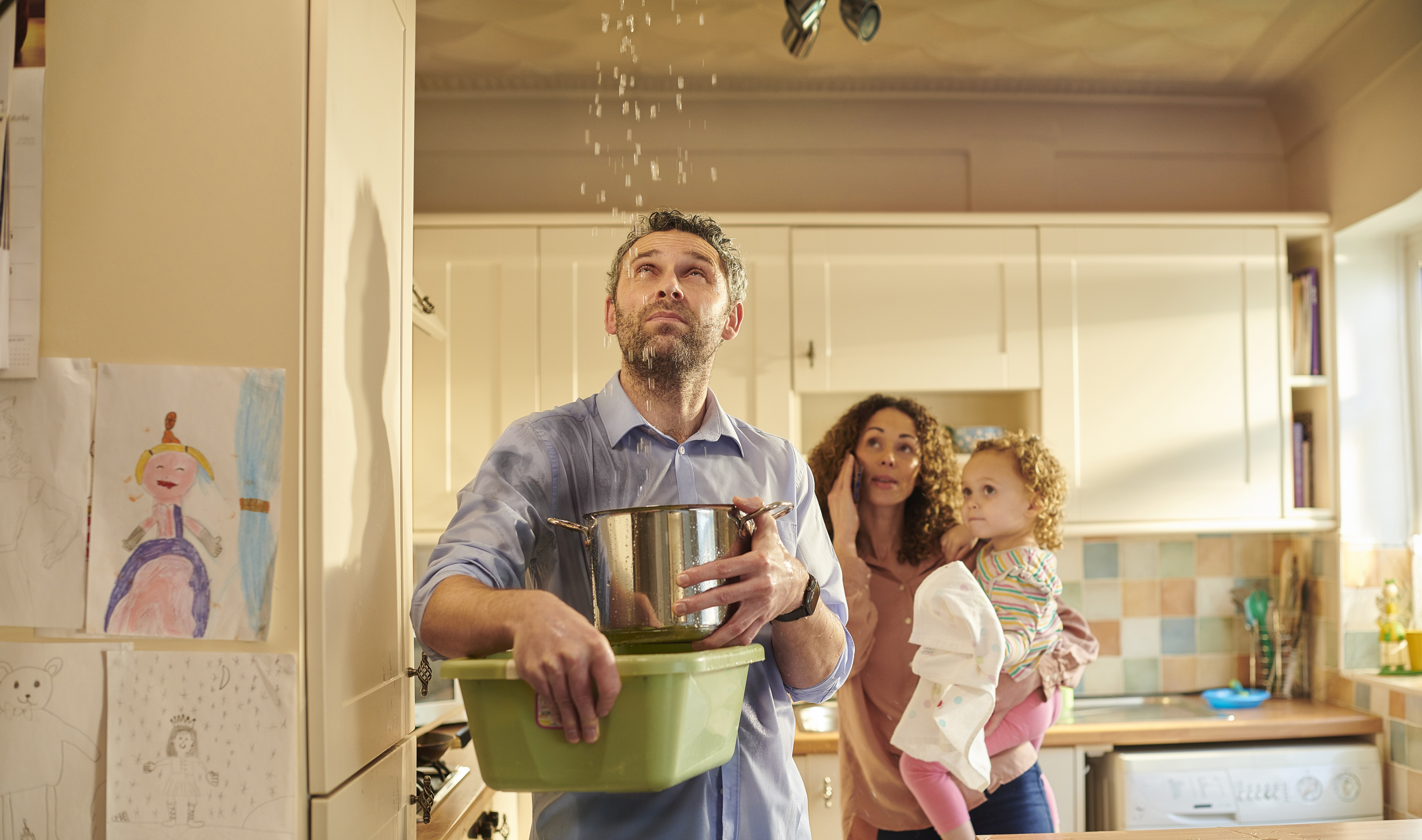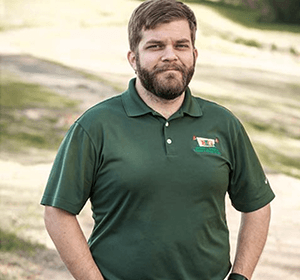Leaks in your home’s plumbing, drain or sewer system can do extensive damage. In warmer climates like Louisiana, there is also a major risk of mold infestation any time even a small amount of water is leaking in your home. The first step to repairing a leak is obviously to locate the source. This is often much more difficult than you may think since the visible signs of a leak that you see may not be in the exact same location as the leak. Depending on the age of your plumbing, there may also be multiple leaks in more than one place. In this article, we’ll give you some tips on how to know if there is a leak in your home and how to try and pinpoint the location of a leak.
Use Your Water Meter to Check for Leaks
Some types of leaks can be quite difficult to spot and may remain undetected for quite some time. This is especially the case for homes that have a concrete slab foundation since many of the water lines are located underneath the foundation. Slab leaks can do serious structural damage to a home, and you may not know that there is a leak until the damage has already been done. This is why it’s important to monitor your monthly water bills for any unexpected increases since an unexpected spike almost always indicates that there is a leak either inside or outside your home.
If your water bill does suddenly spike, it’s a good idea to check your water meter since it can help you quickly determine if there is a leak. Most water meters have a leak detector, which is a small dial that spins any time water is running. Before checking the meter, make sure that all of your indoor and outdoor plumbing fixtures are shut off. You can then check the meter to see if the leak detector dial is spinning. If it is spinning when no water is running, we’d recommend closing the shut-off valve on your main water line so that the leak stops and then contacting a professional leak detection service.
A small pinhole leak won’t always cause the dial on the water meter to spin, but it can still do lots of damage if left unchecked. Even a pinhole leak can also waste sufficient water to cause your water bill to spike. Although the dial may not spin if there is just a small leak, you can still check for it using your water meter. The easiest way is to check the usage reading on the meter before going to work and then again when you get home. As long as no one was home during the day and you made sure to shut all of your plumbing fixtures off, the usage reading should be the same when you get home as it was in the morning. If the usage has increased, it’s a sure sign that there is a leak.
Look for Visible Signs of the Leak
Most leaks inside a home will start showing some tell-tale signs fairly quickly, such as brown or yellow water stains on the ceiling or wall. If a toilet, drain or dishwasher is leaking, it will often lead to wet spots on the carpet or flooring. You may also notice that the flooring suddenly feels spongy or soft or that it has started to warp or pull up from the subfloor. Another fairly sure sign that there is a leak is if your home is suddenly much more humid than normal or you start having issues with condensation forming on windows or walls. Mold or mildew growth or a noticeable moldy odor can also help you identify if there is a leak. In this case, you should see if you can determine where the moldy smell is coming from since this can help you pinpoint the location, which will make the plumber’s job easier.
Underground leaks in the main water line, sewer line or irrigation system can obviously be a bit harder to detect. Depending on how big the leak is, you may start seeing standing water or wet spots in your yard or next to your foundation. An underground leak will also often make the ground in the surrounding area feel soft and spongy. Another thing to look for is if any patches of grass or vegetation are much greener or grow lots faster than everything else.
Listen for the Sound of Running Water
If you suspect that there’s a leak but can’t see any visible signs anywhere, another useful option is to listen for the sound of dripping or running water. You first want to again make sure that all of your plumbing fixtures are off. You should then go into your bathrooms, kitchen and everywhere else that you have any plumbing fixtures and listen for a few seconds. When all of the plumbing fixtures are off, water just stands inside the pipes so you shouldn’t hear water running. If you can hear the sound of running water, you should again close the main water shut-off valve and contact a plumber.
How Professional Leak Detection Works
Plumbers usually have many different tools at their disposal that they can use to detect any type of leak and pinpoint exactly where it is. The best way to detect a leak in a main sewer line is to perform a camera inspection. This is done by inserting a special waterproof camera into the sewer line and viewing the video feed to check the condition of the sewer line and look for any cracks, holes, etc.
If a plumber suspects there is a slab leak, they will usually check for a leak using specialized equipment. One option is to use a microphone to listen for the sound of water running or dripping underneath the foundation. The microphone is sensitive enough that it will easily pick up any unusual sounds and allow the plumber to quickly narrow down the area where the leak may be. A thermal imaging camera is also useful for detecting slab leaks, and it can also be used to pinpoint the location of leaks inside a wall, floor or ceiling. A leaky cold or hot water line is fairly easy to spot with this type of camera since it will usually show that there is a spot that is hotter or colder than everything around it.
If you need the help of a reliable, experienced plumbing contractor in the Shreveport area, look no further than Bobby L Greene Plumbing, Heating & Cooling Co.. We’ve been serving area residents since 1959 and are proud to be the most trusted residential and commercial plumbing service in the area. Our licensed plumbers are experts in leak detection and repair, and we can help if you suspect you have a slab leak or any other type of leak. We also offer camera inspections and expert sewer repair and replacement services, and our team can handle all of your water heater and plumbing installation needs as well. To schedule a service call and learn what makes us the best choice for plumbing, heating and air conditioning in Shreveport, contact us today.

